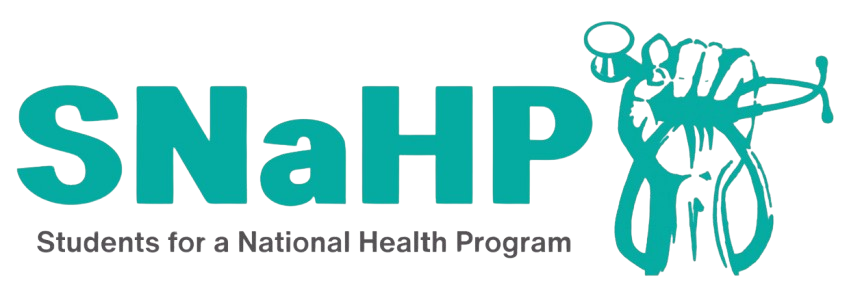On May 22, 2025, H.R.1, or the “One Big, Beautiful Bill”, passed the House of Representatives. Proponents of this bill claim it will provide wage increases and massive take-home savings. In reality, this bill would increase the federal deficit by $3.8 trillion to pay for tax cuts for the ultra wealthy, at the expense of average American communities. Any “benefits” of this bill would only be noticeable to those in the top ten percent of earners. Meanwhile poor and working-class Americans would receive few benefits or lose resources provided by their hard-earned tax dollars. As future physicians, we cannot ignore legislation that threatens to unravel Medicaid and Supplemental Nutrition Assistance Program (SNAP), two systems that keep our patients alive and healthy. Thereby, we strongly oppose H.R. 1., a bill which would push 13.7 million people off their health insurance, gut critical safety-net programs, and worsen health disparities.
This bill cuts funding to Medicaid. According to the Chief Budget Office, 8.7 million people would lose Medicaid coverage with implementation of “One Big, Beautiful Bill”, and 7.6 million more would be uninsured within 10 years. Over half of Medicaid beneficiaries live with at least one chronic condition, and approximately 15% live with at least three. The proposed Medicaid cuts threaten some of the most vulnerable Americans. H.R. 1 also fails to renew premium tax credits, jeopardizing coverage for over 22 million Americans who rely on the ACA marketplace. It forces low-income seniors to pay more for medications and care by raising premiums and out-of-pocket expenses.
Not only would Medicaid lose funding, H.R. 1 purposefully targets specific groups, and uses confusing administrative hurdles to strip people of their eligibility and reduce enrollment. It requires burdensome Medicaid eligibility redeterminations every 6 months, and for Medicaid recipients to meet strict “community engagement” requirements— a work requirement in disguise. Additionally, it eliminates coverage during the “reasonable opportunity” period for proving citizenship/immigration status, threatening legal residents’ access to care. It also prohibits Medicaid funding of gender-affirming care for transgender minors and bars ACA plans from covering such care for all ages, despite major medical societies internationally recognizing this care as essential. “One Big, Beautiful Bill” is not about fiscal responsibility, it is cruelty disguised as policy.
In addition to health care, SNAP—a lifeline for over 40 million Americans—is also on the chopping block. While participation in the program has remained high, average monthly benefits have dropped sharply: from $439 per household in 2022 to just $352 in 2024. These reductions stem from the expiration of COVID-era emergency allotments and cost-cutting policy changes—not because the need has gone away. In fact, as of early 2025 amid rising inflation and escalating food prices, SNAP participation has increased.
SNAP, which adjusts monthly, is one of the fastest and most responsive tools available when household income drops from job loss or reduced hours. H.R. 1 restricts eligibility, imposes stricter work requirements, and increases red tape for enrollment. These changes are projected to cut SNAP funding by billions, reducing access to food for millions of children, seniors, veterans, and working-class families. We understand that nutrition is health care. Denying food assistance will only drive up malnutrition-related health conditions, emergency room visits, and long-term health costs.
Let us be clear—your constituents are watching. They see what this bill is: a transfer of resources from working families to the wealthy few, a calculated attack on marginalized communities, and a direct threat to our health care system’s ability to serve anyone—insured or not. If passed, hospitals, especially in rural and underserved areas, may be forced to cut staff, reduce services, or shut down altogether, increasing the burden on emergency departments and driving up uncompensated care costs by an estimated $48 billion within the next ten years.
We call on you, our Senators, to vote NO on H.R. 1. Uphold your responsibility to protect the health, dignity, and well-being of every American who voted for you—not just the privileged few.
Sincerely,
Students for a National Health Program
